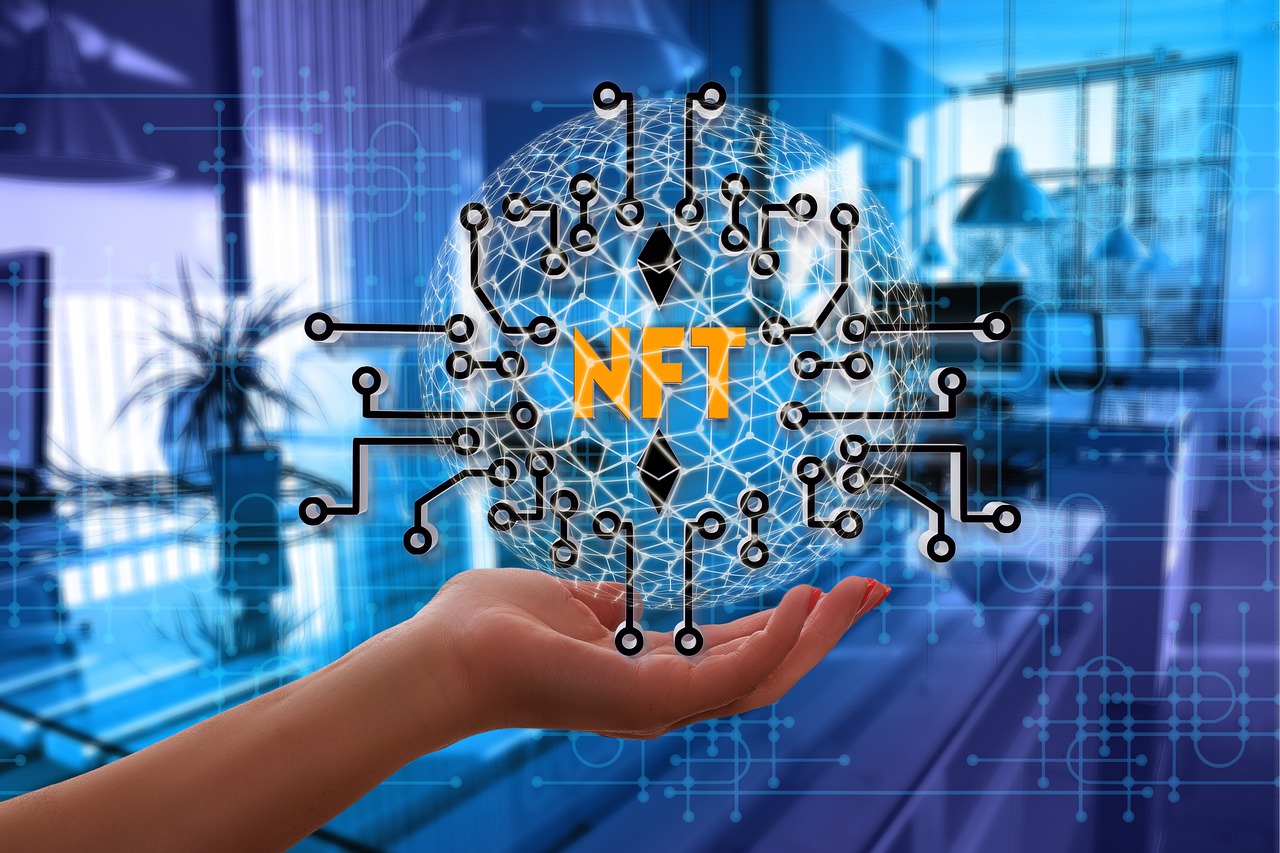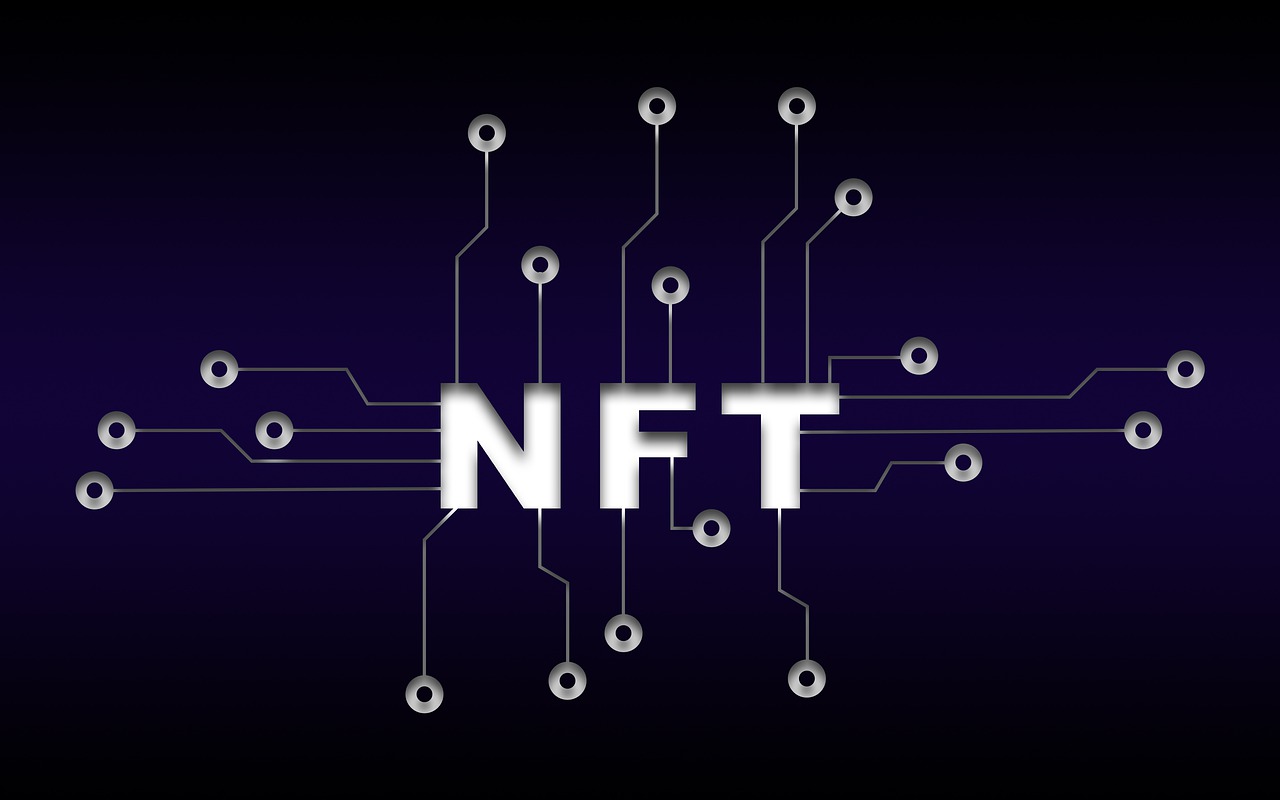NFT marketplace development is a great opportunity for businesses to grow and expand into new markets.
NFTs (Non-Fungible Tokens) are a relatively new class of digital assets that have emerged in recent years. In contrast to traditional cryptocurrencies that are fungible and can be exchanged for fiat or other crypto assets, NFTs are unique digital assets that are not interchangeable or divisible.
NFTs have several use cases, but they can be classified into two main categories: collectables and games. The former is the most popular type of NFT, as they allow users to create digital representations of real-world objects. The latter is used in video games and other projects that require non-fungible tokens.

What is An NFT Marketplace?
NFT marketplaces allow users to buy, sell and transfer Non-Fungible Tokens (NFTs). NFTs are unique digital assets that can’t be duplicated or destroyed. This makes them a perfect fit for virtual reality and other gaming applications.
NFT marketplaces are similar to crypto exchanges in some ways, but they also have some key differences.
Crypto exchanges facilitate the trading of cryptocurrencies like Bitcoin and Ethereum. They are centralized platforms that require you to deposit your funds before trading them. The exchange holds your funds in a wallet, which makes it vulnerable to hacks and theft.
NFT marketplaces, on the other hand, let you trade NFTs directly between users without going through a third party or an exchange. This makes them safer than crypto exchanges because there is no risk of losing your money due to hack attacks or theft by employees at the NFT marketplace (although there is still a risk of fraud).
NFT Marketplace Development: Must-Have Features
NFT marketplaces are set to become a big part of the blockchain ecosystem. They can be used for everything from tokenizing physical assets and trading them on-chain to building an e-commerce ecosystem.
The following are some of the key features that need to be included when developing a great NFT marketplace:
1. Easy user experience
The NFT marketplaces should be easy to use and understand so that even non-technical users can easily use them.
The platform should have a simple interface with a clean design and minimalistic icons to represent different functions to achieve this goal. The marketplace should also provide tutorials on how to use it and how they can get started in their journey as an investor or seller.
2. Decentralized hosting
An NFT marketplace should be hosted on a decentralized infrastructure so that one entity cannot control it. This will ensure that users can trust that their data is secure and protected.
In addition, those who wish to create their own NFTs will be able to do so without relying on centralized platforms or APIs.
3. Support for different types of tokens and assets
NFT marketplaces must support all types of assets being traded on them.
Not only this, but they must also allow users to create new asset types that can be traded on the platform. This will enable more flexibility for developers who want to include their own assets in games or other applications.
4. Multiple fiat currencies support
Users can deposit and withdraw funds from the platform using multiple fiat currencies is one of the most important features of any NFT marketplace.
Without this feature, users would have difficulty purchasing or selling their NFTs because they couldn’t pay trading fees in their local currency. This feature also makes it easier for new users to get started with an NFT marketplace because they don’t have to worry about converting their local currency into another cryptocurrency before they can start trading.
5. Tokenization of non-fungible assets
The first step to creating a successful NFT marketplace is tokenizing non-fungible assets. This involves using smart contracts to develop unique NFTs for each individual item that you want to sell.
The article owner then places it up for sale on your platform, and anyone who wants to purchase it can do so with their own NFTs or fiat currency.
6. Multi-signature transactions
Any transaction on your marketplace should require multiple confirmations before being processed.
This ensures that no single party controls the funds being exchanged between users. This will also prevent hackers from stealing user funds or manipulating the market price with fake orders.

Benefits of NFT Marketplace Development
Non-Fungible Token (NFT) marketplaces are a new and exciting way for blockchain developers to monetize their platforms. The NFT marketplaces allow users to sell and buy digital assets on a platform, similar to how eBay and Amazon work.
The benefits of implementing an NFT marketplace are:
1. Monetization
In traditional markets, there are many ways to monetize your assets. With NFTs, you can monetize your digital assets by selling them or trading them with others who have purchased them on the platform.
This is especially beneficial for people who have created unique items but do not want to sell them because they are sentimental or personal in nature. Selling NFTs allows you to eliminate them without giving up their value and the value they might hold for the future.
2. Community Engagement
NFTs are valuable assets that can be used as marketing tools other than just being sold on a marketplace. They can be used as cross-promotions with other brands or even in contests and giveaways to increase customer brand awareness and loyalty.
3. Data Collection
Data collection is an important part of any business. It can help you improve products, services, and marketing strategies. When it comes to using NFTs as a form of payment, you can collect data on your customers through the use of blockchain technology.
You will be able to see how much time they spend on your website and their overall spending habits. You can also track what they buy and use this information to create targeted ads or send them coupons when they are most likely to purchase something from your store.
4. Branding Opportunities
NFT marketplaces are an excellent way to build your brand. Your customers can interact with your business through various platforms, including social media and in-app messaging.
You can also use these platforms to post updates about new products or promotions.
5. Scalability
One of the biggest benefits is that NFT marketplaces are built to scale. This means that they can handle large volumes of transactions and users, which is important for any business — especially one trying to grow its customer base.
NFT marketplaces can be built on top of existing blockchain networks or designed from scratch as centralized systems. Both options have pros and cons, but they will allow you to scale your business quickly and easily by adding more servers.

NFT Marketplace Development For Businesses
NFT marketplace development is a great way to create a scalable business.
NFT marketplaces have the potential to be utilized by many different types of businesses, including those that are already active in the crypto space and those that are entirely new to blockchain technology. In addition, they can be used as a platform for smaller businesses that want to expand their reach or offer new products or services.
As a result of this scalability, NFT marketplace development offers an excellent opportunity for businesses looking to grow their customer base and expand into new markets.
A subject matter expert of AI at Idea Usher, Pallavi loves going through courses, reading books, and obsessing over technical blogs and news. When not reading or writing, she spends her time going over an unending Netflix watchlist.
